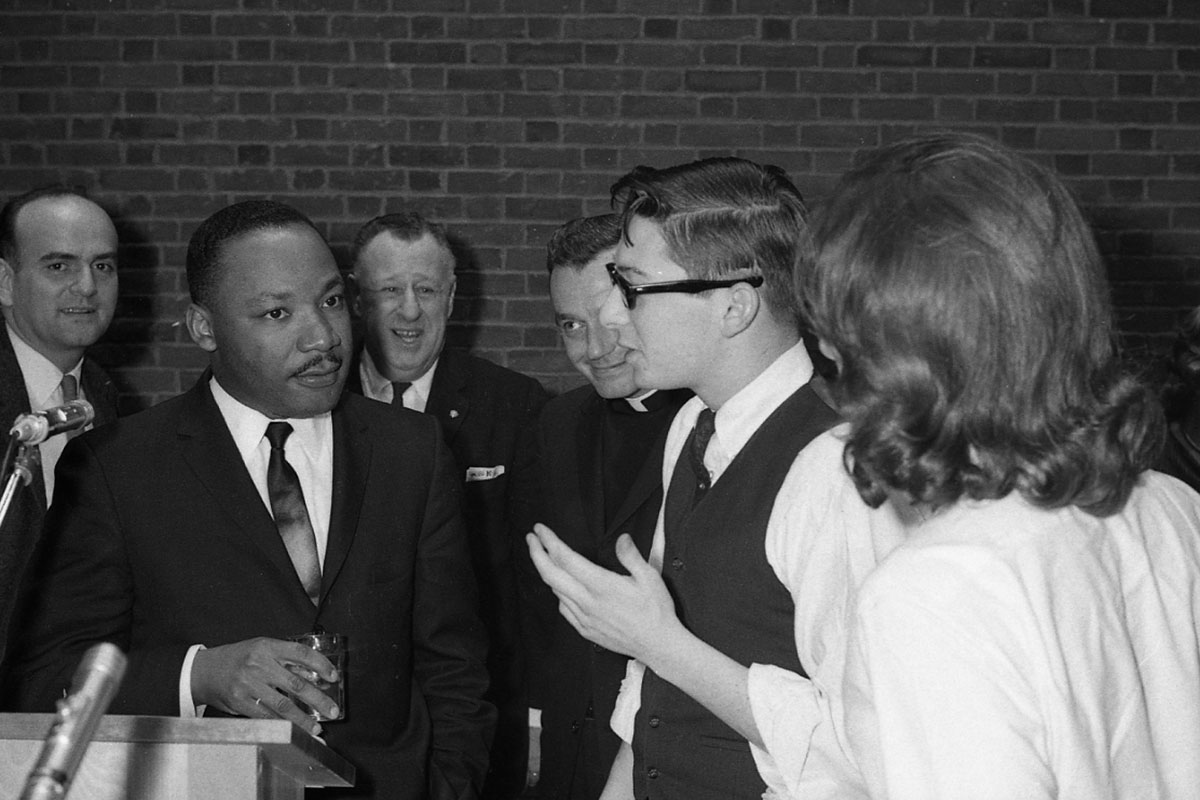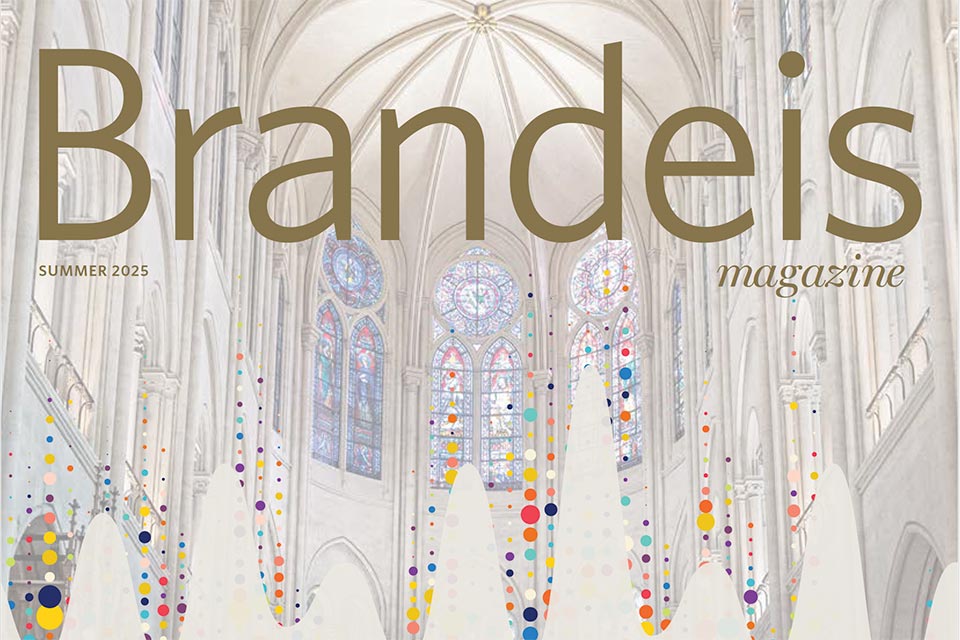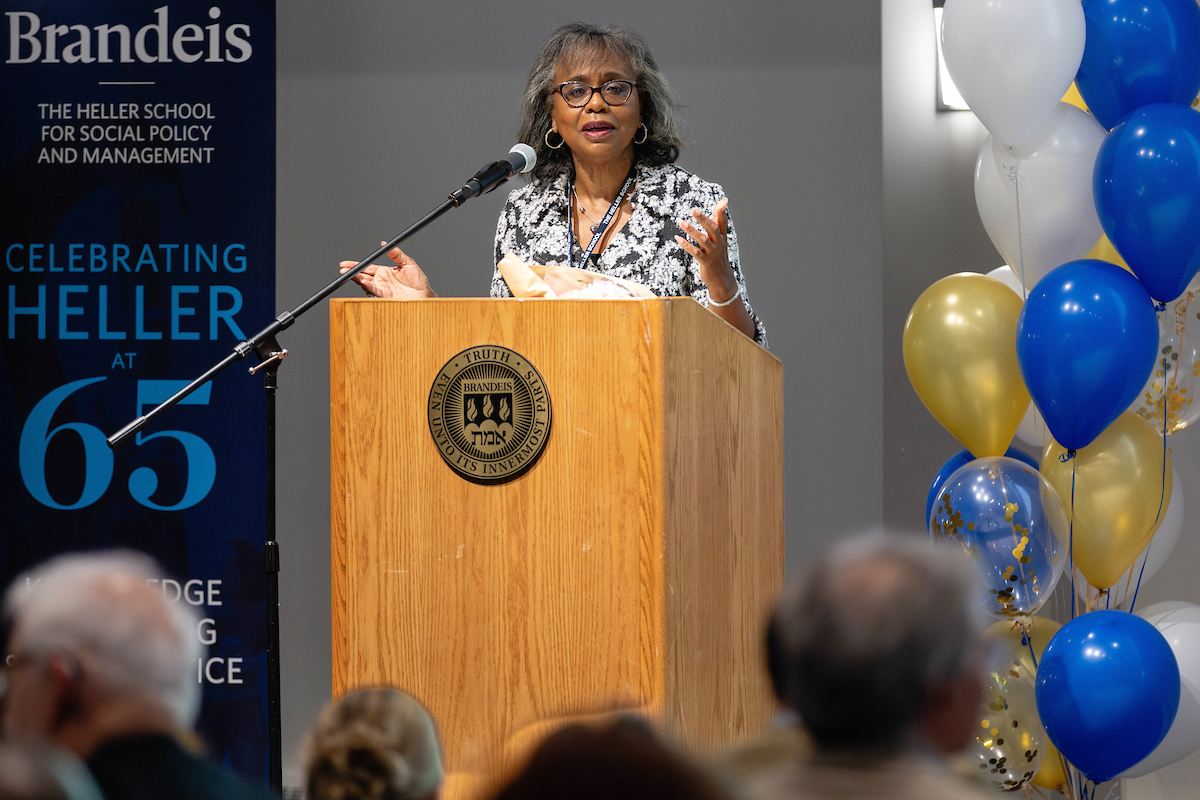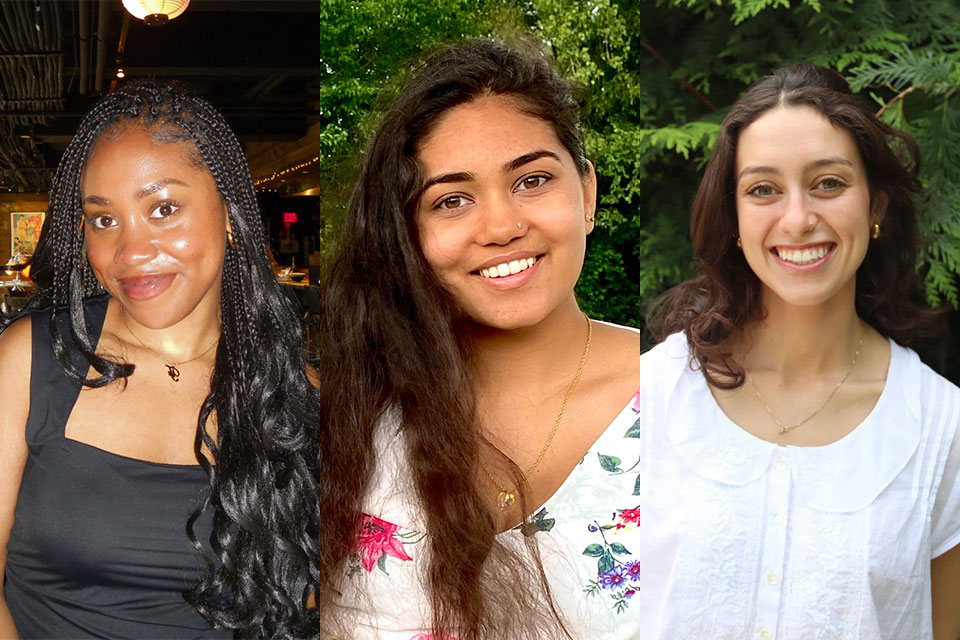Remembering Martin Luther King Jr. at Brandeis
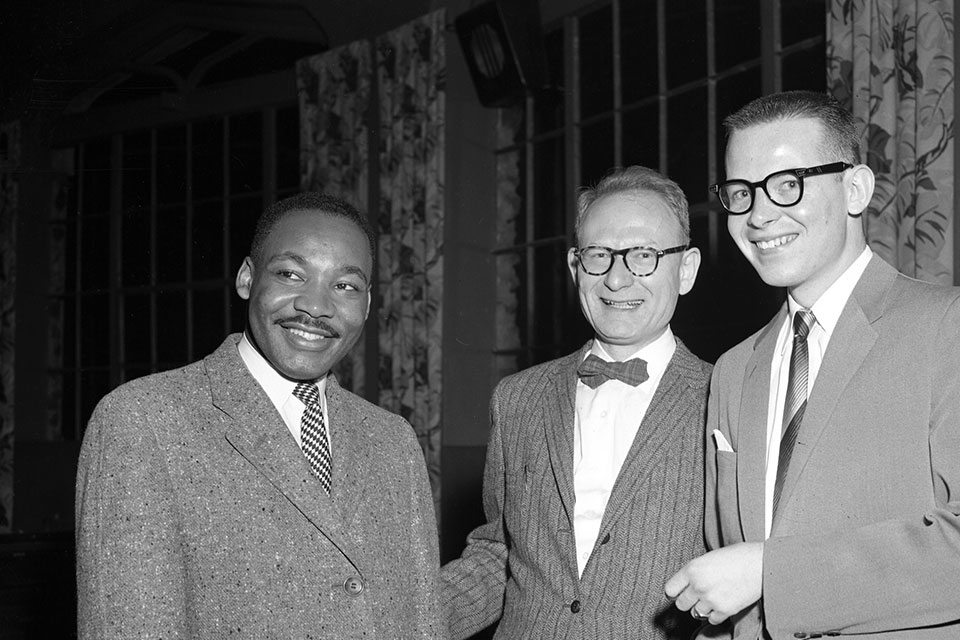
Photos/Courtesy of the Robert D. Farber University Archives & Special Collections Department, Brandeis University
January 10, 2024
While Martin Luther King Jr. is honored nationwide every third Monday in January with a federal holiday that bears his name, his legacy as a civil rights activist holds a particularly special place at Brandeis.
King visited campus three times, in 1956, 1957, and 1963, to lecture about justice, nonviolence and racism in America. An assortment of photographs belonging to Brandeis’ Robert D. Farber University Archives and Special Collections Department not only capture poignant moments from his talks, but also illustrates King’s eagerness to engage Brandeis students, faculty and administrators, including founding president Abram Sachar, at the newly-established university.

King's visits to the Brandeis campus
King first spoke on campus on Nov. 12, 1956 at the Ford Forum Hall, and then again on April 3, 1957 as part of the Helmsley Lectures, a six-part lecture series addressing race relations. His talk was entitled “Justice Without Violence” and addressed the segregation crisis in the south and his theory and practice of nonviolent resistance.
Listen to King's “Justice Without Violence” lecture:
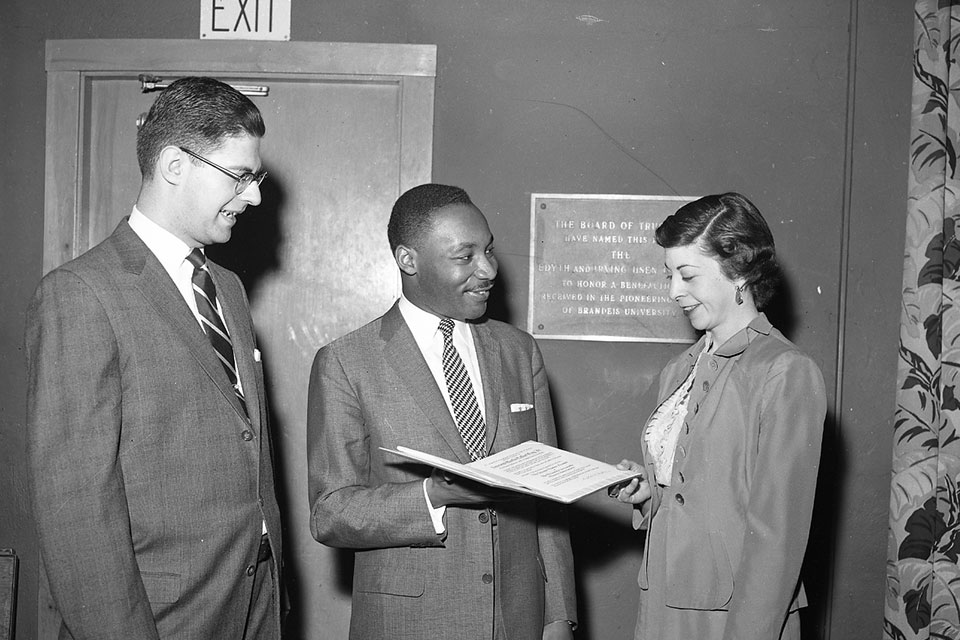
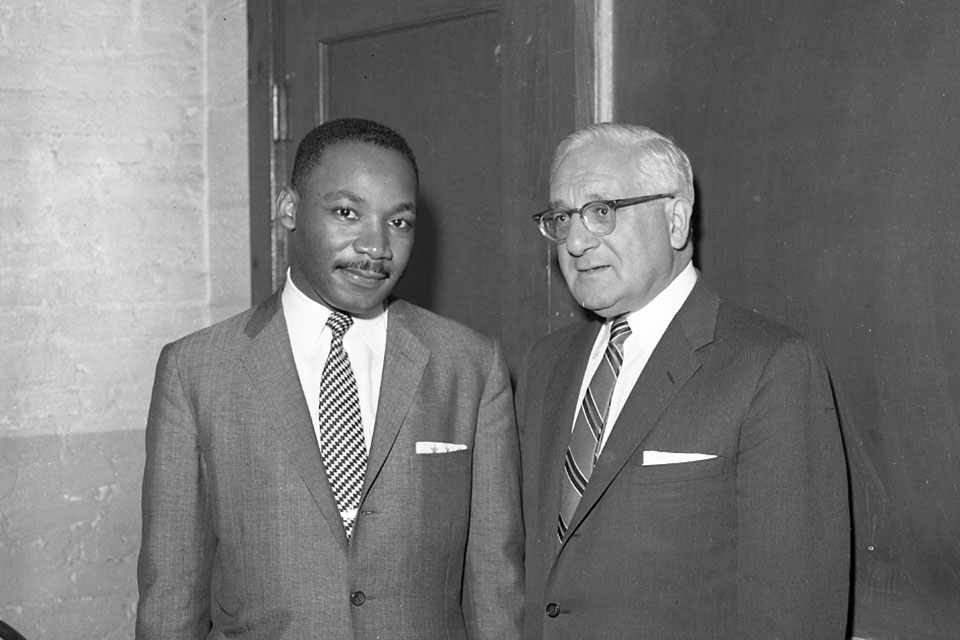
At the time he was pastor of the Dexter Avenue Baptist Church in Montgomery, Alabama, and president of the Montgomery Improvement Association, the organization that led the Montgomery bus boycott from 1955 to 1956. Earlier that year, he had been elected president of the newly-founded Southern Christian Leadership Conference. At the young age of 28, he had already been identified among the most admired religious leaders in the world.
His third visit to Brandeis came Feb. 25, 1963 — shortly before his historic March on Washington.
Related Stories
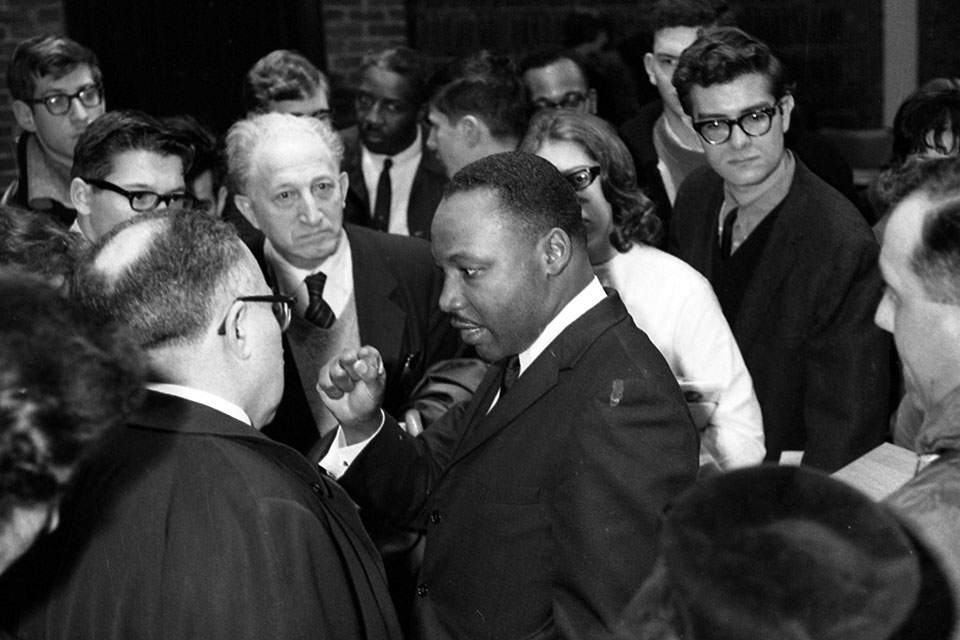
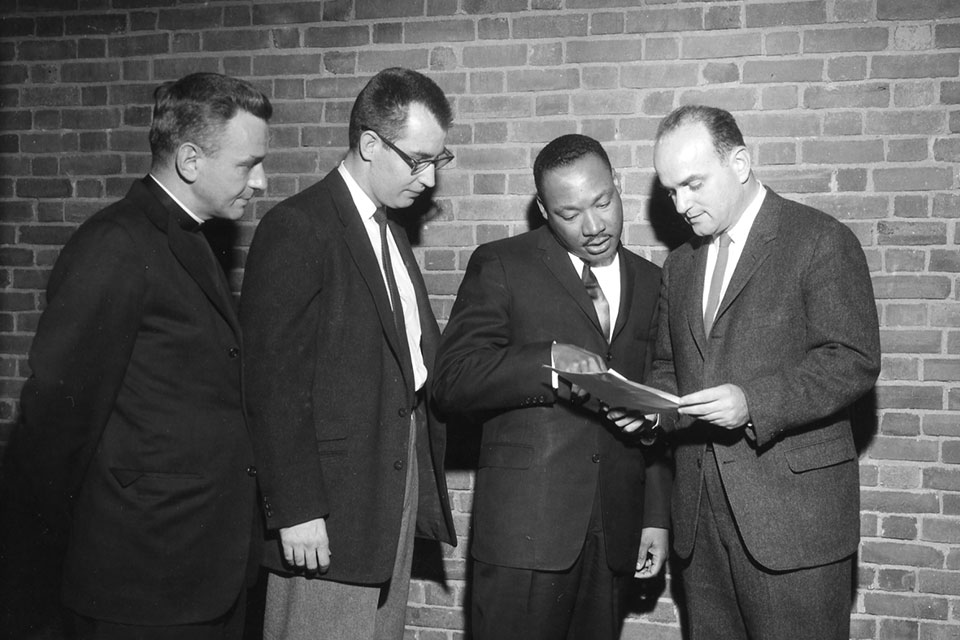
Honoring MLK today with a fellowship in his name
Brandeis continues to honors King with the Dr. Martin Luther King Jr. Fellowship, which is awarded annually to 10 first-years on the basis of their academic performance and extracurricular participation in high school, outstanding community involvement and financial need.
The fellowship was the result of a request to founding president Abram Sachar by students participating in the 1969 Ford Hall protests. Though the students asked for a scholarship to be given annually in King’s name to five African-American first-years, Sachar ultimately agreed to annually award 10 scholarships.
